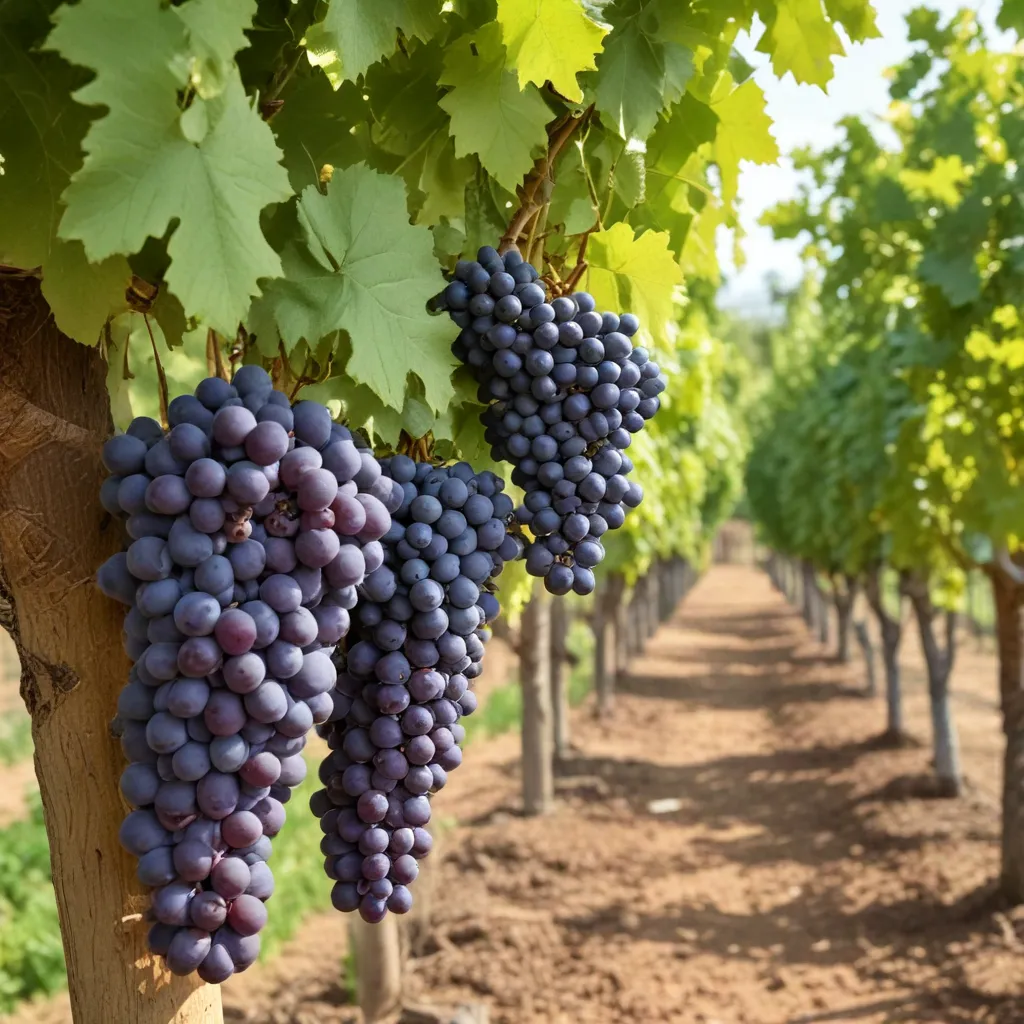
The Canadian grape and wine industry contributes a staggering $11 billion to the national economy each year, employing over 45,000 full-time workers. (1) To support this thriving ecosystem, visionary leaders established the Cool Climate Oenology and Viticulture Institute (CCOVI) at Brock University in 1996 – an internationally recognized research hub dedicated to advancing the Ontario and Canadian grape and wine industry.
Climate Factors
Canada, like many other nations, faces a range of challenges impacting the agricultural landscape, including a changing climate, urbanization, population growth, rising costs, and labor shortages. (1) The need for sustainable agriculture management has never been more critical, and the researchers at CCOVI are spearheading innovative solutions to tackle these issues head-on.
Temperature and Precipitation
The Niagara Peninsula, where CCOVI is located, experiences a cool climate with distinct seasonal variations. Winters are cold, while summers are moderated by the surrounding Great Lakes. These temperature fluctuations, along with the region’s variable precipitation patterns, present unique challenges for grape growers and winemakers. CCOVI scientists are studying how different grape cultivars, clones, and rootstocks respond to these evolving environmental conditions, with the goal of identifying resilient and adaptable plant material. (2)
Soil Composition
The Niagara Peninsula’s soils are equally diverse, with deposits of limestone, shale, gravel, and silt left behind by glaciers. (4) These unique terroir characteristics influence the growth and development of grapevines, impacting factors such as nutrient uptake, drainage, and root systems. CCOVI researchers are exploring how specific soil compositions and profiles can be leveraged to enhance grape quality and yield.
Growing Seasons
The region’s temperate climate, with cold winters and moderated summers, is particularly well-suited for cultivating cool-climate grape varieties like Riesling, Chardonnay, and Pinot Noir. (4) The deep lakes that dot the landscape act as natural temperature regulators, absorbing heat during the day and releasing it slowly at night, which helps prevent frost damage and maintain a consistent growing environment. CCOVI’s studies on the interplay between microclimates, elevation, and slope aspects aim to optimize vineyard sites and management practices.
Innovative Winemaking Techniques
In addition to exploring the intricacies of grape growing, CCOVI researchers are also delving into the latest advancements in winemaking processes, with the goal of enhancing the quality and diversity of Canadian wines.
Fermentation Processes
The institute’s enologists are investigating innovative fermentation techniques, including the use of wild yeasts, malolactic fermentation, and temperature control to coax out unique flavor profiles and mouthfeel characteristics in the wines. By understanding the complex biochemical reactions that occur during fermentation, CCOVI is helping winemakers in the region refine their craft and push the boundaries of what’s possible in a cool climate.
Aging and Maturation
The aging and maturation of wines is another area of focus for CCOVI researchers. They are exploring the impact of different oak regimens, lees contact, and bottle aging on the development of a wine’s structure, aroma, and balance. This knowledge allows winemakers to make informed decisions about the optimal elevage for their wines, ensuring they reach their full potential.
Blending and Flavor Profiles
Blending different grape varieties, clones, or vineyard lots is a critical step in winemaking, as it allows winemakers to create complex, harmonious flavor profiles. CCOVI scientists are studying the art and science of blending, providing guidance on techniques that enhance aromatic expression, mouthfeel, and overall wine quality.
Grape Varietals and Terroir
The Niagara Peninsula’s unique terroir has long been recognized for its suitability in producing world-class cool-climate wines. CCOVI researchers are at the forefront of exploring the region’s grape-growing potential.
Cold-Hardy Grape Cultivars
While the region was historically known for native grape varieties like Concord and Catawba, the breakthrough came in the 1950s and 1960s when Dr. Konstantin Frank demonstrated that European Vitis vinifera grapes could thrive in the Finger Lakes. (5) CCOVI continues to study and promote these hardy vinifera cultivars, as well as their adaptability to the region’s variable climate.
Unique Regional Characteristics
The Finger Lakes’ deep glacial lakes, rolling hills, and limestone-rich soils create a distinct microclimate that imparts unique flavor profiles and characteristics to the wines. (4) CCOVI’s research delves into the nuances of this terroir, helping winemakers leverage the region’s inherent advantages to craft exceptional, site-specific wines.
Sustainability Practices
As the industry faces the challenges of a changing climate, CCOVI is also leading the charge in developing sustainable grape-growing and winemaking practices. This includes exploring precision agriculture techniques, cover cropping, water management, and integrated pest management to reduce the environmental impact of viticulture and enology.
Enological Analysis and Quality Control
CCOVI’s state-of-the-art facilities and skilled researchers also play a crucial role in ensuring the quality and consistency of Canadian wines through advanced analytical techniques and sensory evaluation.
Sensory Evaluation
The institute’s trained sensory panels assess the aroma, flavor, and mouthfeel of wines, providing valuable feedback to winemakers. This data helps them refine their techniques and optimize the expression of the region’s terroir.
Chemical Composition
CCOVI’s analytical laboratories employ cutting-edge tools to measure the chemical composition of wines, including parameters like alcohol content, acidity, tannins, and phenolic compounds. This information allows winemakers to make informed decisions about blending, fining, and stabilization processes.
Regulatory Compliance
In addition to quality control, CCOVI researchers also play a vital role in ensuring that Canadian wines meet all regulatory requirements, both domestically and for export markets. This includes monitoring for contaminants, authenticity, and labeling compliance, safeguarding the industry’s reputation for excellence.
The innovative work being done at CCOVI is not only transforming the grape and wine industry in Canada but also serving as a model for cool-climate regions around the world. By leveraging cutting-edge research, advanced technologies, and a deep understanding of the region’s unique characteristics, CCOVI is helping to drive the Canadian wine industry forward, ensuring its continued success and sustainability. To learn more about the Wine Garden Inn and our own winemaking journey, please visit our website.
